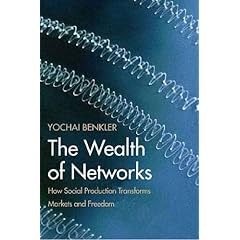(subtitled: Outcomes of the Fair Use Review Announced).
For the past 12 months, Australia has been going through a major review of its copyright law, and in particular, its exceptions to copyright infringement, with a view to ‘updating’ this material for the digital environment. I note that we are not the only ones: Canada are having an ongoing debate (see Michael Geist on all this), and the UK are having their Gower Review (see here).
Today, the Attorney-General has issued a press release, announcing the results of the review. As yet, the press release does not appear to be online, so I’ll summarise. In essence, the government has decided not to adopt the US ‘fair use’ system – where a broadly worded defence must be assessed on a case-by-case basis. Instead, the government will expand, and amend, existing specific exceptions in Australian law. That makes the amendments complicated, but potentially more certain.
The Attorney-General, Philip Ruddock, is characterising the reforms as:
‘…significant copyright reforms which make our laws fairer for consumers and tougher on copyright pirates.’
According to the AG:
‘These are commonsense amendments which will maintain Australia’s copyright laws as the best in the world for the benefit of our creators and other copyright owners and for hte many Australians who enjoy their creative works.’
I wonder, though. The government does appear to have caved on the issue of the ‘flexible exception’ – the ‘catch all’ provision to except uses not foreseen at the time of this legislation. In my submission, I supported such flexibility, and I’m very sorry to see it apparently not there. I wonder whether in a few years time we will be saying what Bill Cornish (not an IP radical or copyleftist, by any stretch of the imagination) said in his Clarendon Lecture:
‘With rapid technical shifts on the scale of the Internet, there must be a case for giving judges some more general power to excuse at the edges, along US lines. After all, at the centre, legislation is rapidly providing the mainstays of control. As one who tried in 1988 to persuade Parliament to introduce a concept of fair use, I feel now even mroe acutely that our failure was a major rebuff. ‘ (Bill Cornish, Intellectual Property: Omnipresent, Distracting, Irrelevant? (OUP 2004) at page 65)
The press release maintains principles which Ruddock has stated a number of times:
- 1. That copyright must keep pace with technology and rapidly changing consumer behaviour;
- 2. that ‘reasonable consumer use of technology to enjoy copyright material’ should be recognised – ‘Australian consumers should not be in a significantly worse position than consumers in similar countries’
- 3. reforms should not ‘unreasonably harm or discourage the development of new digital markets by copyright owners’
- 4. The unique Australian system should be maintained – we are not moving to US-style fair use;
- 5. the law should be updated to tackle rising copyright piracy, and to support the copyright industries.
In summary, the AG has announced:
- 2 new private use exceptions – time-shifting and format-shifting;
- new exceptions allowing schools, universities, libraries, and other cultural institutions to use copyright material for non-commercial purposes;
- new exceptions for people with disabilities;
- a new exception to allow use of copyright material for parody or satire;
- new enforcement measures
Over the fold, I summarise the announcements, and offer some commentary. (more…)

